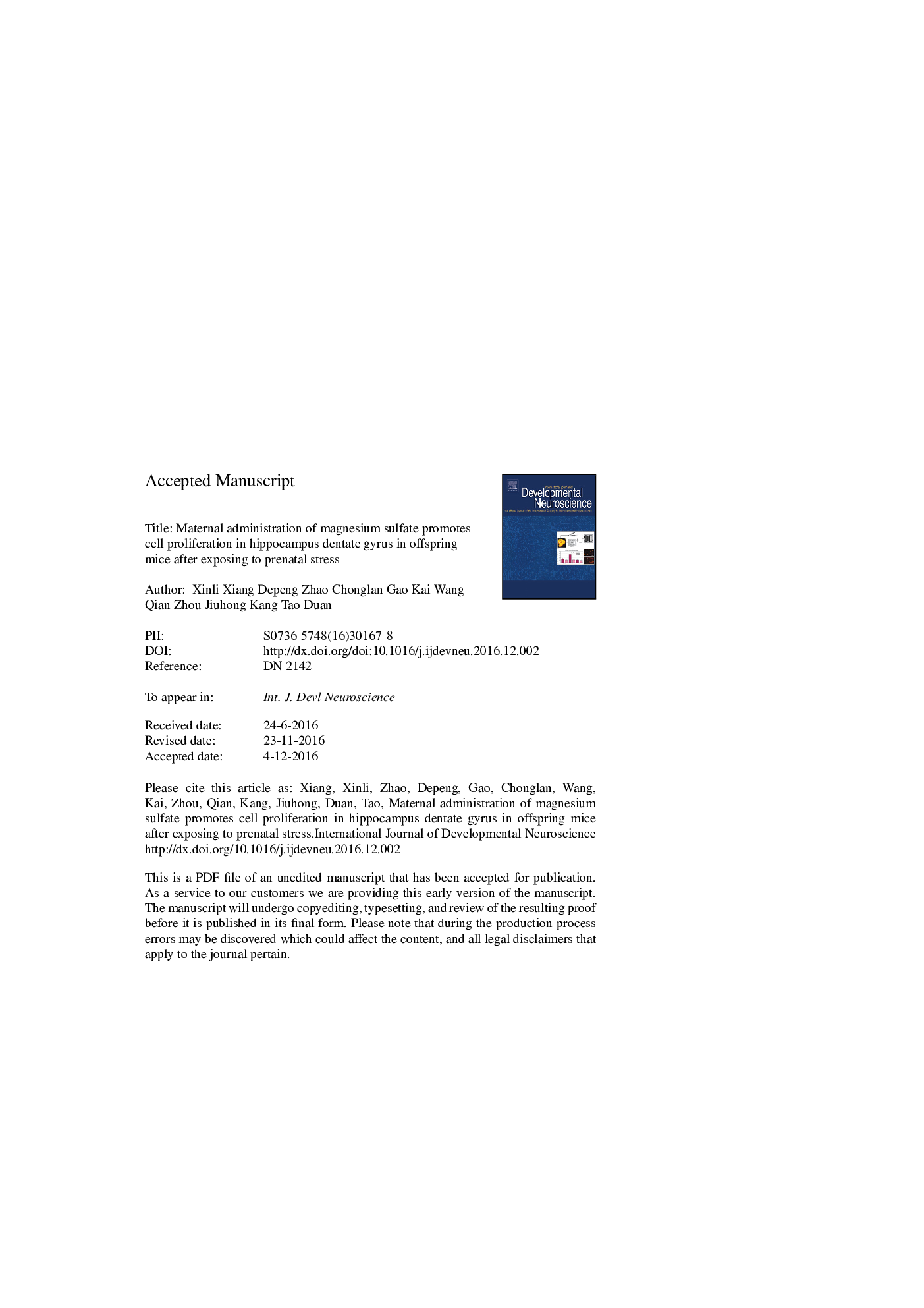| Article ID | Journal | Published Year | Pages | File Type |
|---|---|---|---|---|
| 5585770 | International Journal of Developmental Neuroscience | 2017 | 22 Pages |
Abstract
Prenatal stress (PS) inhibits cell proliferation in the hippocampal dentate gyrus (DG), which is related to hippocampal anatomy and function abnormality. The aim of the study was to investigate the effects of magnesium sulfate (MgSO4) on PS-induced cell proliferation suppression in offspring during embryonic stage and postnatal spatial learning. MgSO4 administration was performed after PS treatment on pregnant mice. Mice were randomly divided into four groups: non-PS or PS maternal mice injected with MgSO4 or saline (PÂ +Â NS, PÂ +Â MG, CÂ +Â MG and CÂ +Â NS group). Corticosterone was collected from amniotic fluid of mother mice on day 17 of embryonic stage (E17). The ability for spatial learning and memory of pups postnatal 3 week was evaluated using water maze assay. Additionally, cell proliferation was detected by assessing the expression of Ki67 using immunohistochemistry in mice fetuses or pups. PS significantly increased corticosterone level in amniotic fluid (PÂ <Â 0.05) and impaired the spatial learning and memory (PÂ +Â NS vs CÂ +Â NS of latency time and track path length: PÂ <Â 0.05) of offspring on postnatal day 21. However, MgSO4 administration could reverse PS-induced spatial learning and memory disability (PÂ +Â MG vs PÂ +Â NS, PÂ <Â 0.05). Additionally, PS reduced the number of Ki67-positive cell in hippocampal DG on E17, E19 and postnatal day 21 (PÂ +Â NS vs CÂ +Â NS, PÂ <Â 0.05), which were also abrogated by maternal administration of MgSO4 (PÂ +Â MG vs PÂ +Â NS, PÂ <Â 0.05). Collectively, prenatal administration of MgSO4 can reverse PS-induced reduction of cell proliferation in hippocampal DG during embryonic stage and postnatal spatial learning.
Related Topics
Life Sciences
Biochemistry, Genetics and Molecular Biology
Developmental Biology
Authors
Xinli Xiang, Depeng Zhao, Chonglan Gao, Kai Wang, Qian Zhou, Jiuhong Kang, Tao Duan,
